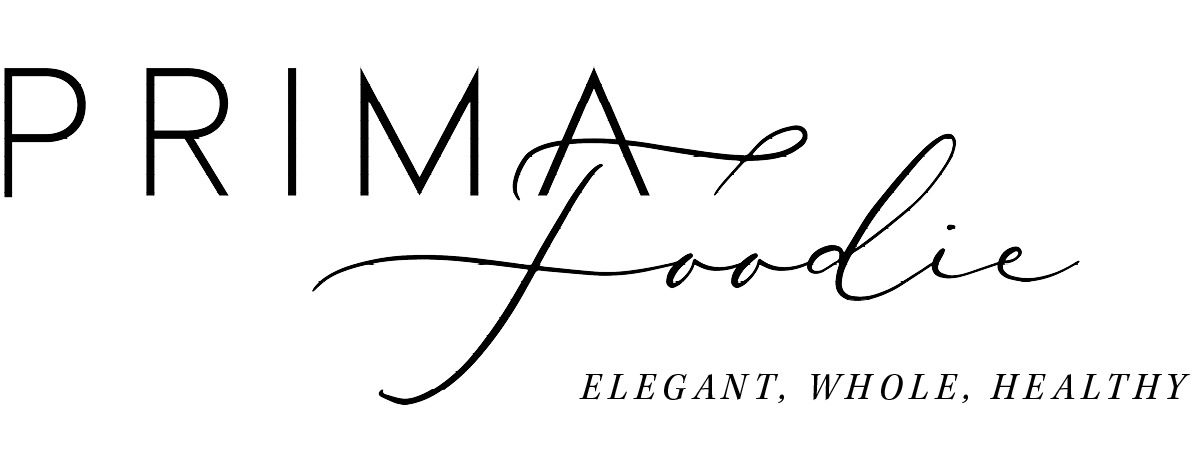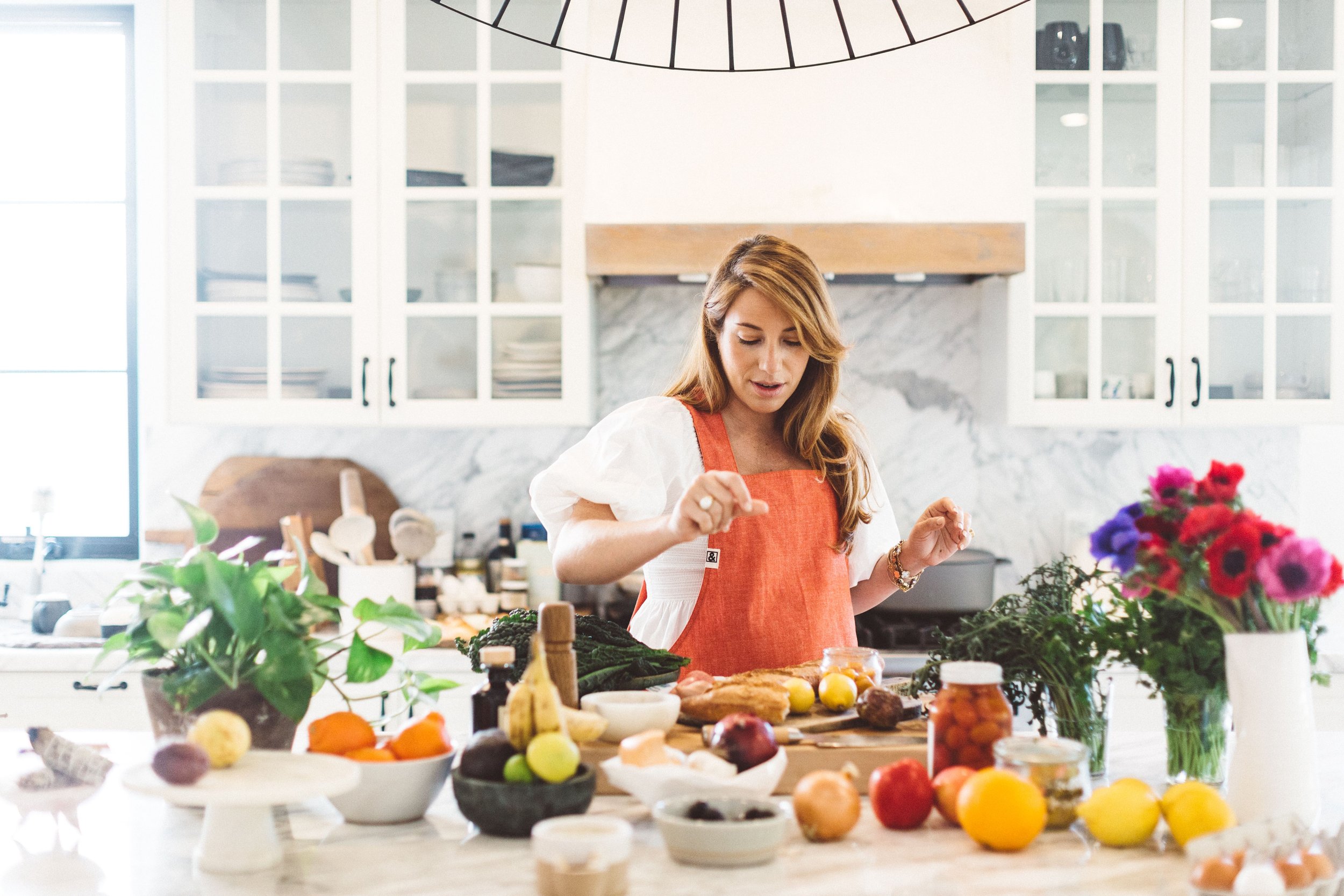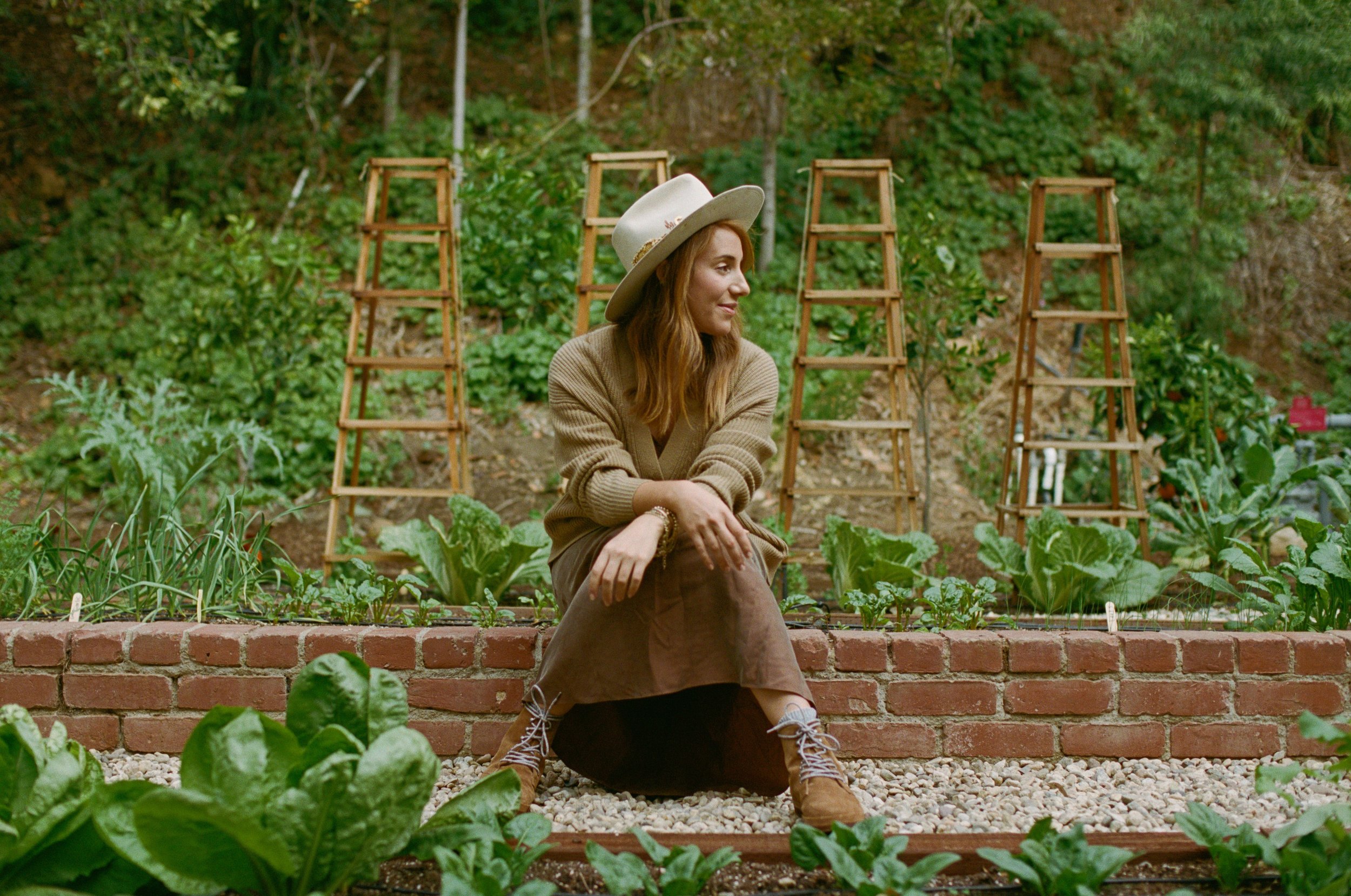Food Activist and Chef Camilla Marcus Is On a Mission to Better Our Food System
By Stacey Lindsay
Several years ago, I stopped into west~bourne, an eclectic all-day café in NYC’s Soho neighborhood, and had one of my favorite lunches to date: a simple grain bowl with roasted sweet potatoes, broccoli, and kale topped with pickled beets and savory tahini. The food was fresh and delicious. But it was the vibe of that warmly lit café that stuck with me. west~bourne exuded the breezy feel of California blended with the sound feeling that the staff truly cared about what they were doing—and serving.
That integrity stems from west~bourne’s founder and owner, Camilla Marcus. A California native and longtime food activist, Marcus has always put the why, how, and who behind what we eat first. She fights for zero waste and honors those who grow, cultivate, cook, and serve our food by giving back to various non-profits. For Marcus, creating food that is “naturally delicious and nutritious” and “better supports a sustainable food system” has always been her drive, she tells us. “It’s the only way to forge a future that we can be proud of passing to the next generation.”
Marcus closed the physical café doors to west~bourne in 2020, but its greater purpose lives on via her new provisions collection of the same name. The west~bourne line consists of sweet and savory snacks (think: organic yellow mushroom popcorn with maple and vanilla and crunchy rice squares with smoked almonds and Japanese togarashi spices), sustainably sourced avocado oil, and spices. Marcus considers everything, from ingredient sourcing to supply chain. “Our production is locally centered with our carbon footprint in mind, and so we can create products that are made up of traceable, responsibly grown ingredients, all while supporting local communities,” she says.
Still fueled by my memorable lunch in NYC, I dug a little deeper into west~bourne’s latest iteration by asking Marcus about her mission and how we all can take part. As Marcus proves, we all can take steps—big and small—toward building a more inclusive and transparent food system. “We love to eat and drink, but our food consumption accounts for a quarter of all greenhouse gas emissions—one of the largest contributors to climate change. Good news is, we can do something about it.”
A Conversation with Camilla Marcus
Let’s start out with your new provisions line, west~bourne. Walk us through its zero-waste and inclusive ethos.
Our production is locally centered with our carbon footprint in mind, and so we can create products that are made up of traceable, responsibly grown ingredients, all while supporting local communities. Our packaging is on the cutting edge of sustainability technology and is made with a variety of low-impact, recyclable, and compostable materials. We’re obsessive about our supply chain as well, which includes a proprietary network of local partners to minimize transportation impact and utilize innovative and regenerative farming practices as well.
We offset the carbon footprint of all orders by purchasing climate credits through The Garcia River Forest Project, a redwood forest preservation and management project in Northern California that protects carbon reservoirs, preserves wildlife habitats, reduces risk of wildfires, and safeguards the California watershed. Our customers can also match our donation directly during checkout as well, which gives them the opportunity to make their orders carbon negative.
What is the greater social mission behind west~bourne?
Food has the power to forge connections and nourish a community. Our mission is to harness the supernatural power of vegetables to invite more people to the table together to transform plant based, zero waste eating that sustains our health—of our own bodies and our planet.
What sparked your advocacy work for giving back and paying attention to people first?
My upbringing centered around being a generous and thoughtful member of our community. Both of my parents were active through regular volunteering and leadership in philanthropic organizations throughout Los Angeles. Being an active part of my neighborhood fueled my soul.
While I was in culinary school, I was also part of the opening team at dell’anima, which had an incredible decade run in the West Village. That experience was a crash course in figuring out all the elements that come together to make a restaurant run smoothly—and it’s also where I fell in love with the hospitality industry and the people who dedicate everything to taking care of others. My first restaurant family was where I started integrating my environmentally focused practices that I grew up into how food is crafted for our neighborhoods, through creating a composting system for the restaurant and implementing an energy-efficient lighting system. This ultimately drove me to want to build west~bourne the cafe, which was the first zero waste certified restaurant in Manhattan. We partnered with The Robin Hood Foundation to forge a unique closed loop giveback system with The Door to support our team growth and local job development. When COVID started, I knew I could not be idle while our whole industry and our beloved teams were left without government support, particularly given those who work in restaurants can’t work from home. So, I jumped into action immediately as a founding member of both ROAR and the IRC, fighting daily for relief.
The other element of advocacy work that is very important to me is centered around childcare. Hospitality workers do not work a traditional 9-5, Monday through Friday job. Women and in particular mothers make up a significant portion of this industry, but the structural childcare system in this country categorically excludes hospitality workers, which is shocking when you consider restaurants are the second largest private employer in the country. You are faced with having to choose between your work or your family—which is no choice at all—and it's imperative that this changes. I’m very focused on driving legislative policy to address this inequity so all parents, especially those in our industry who dedicate so much to others, can have the right to earn a living, build a career, and take care of their families.
How can we all be advocates of zero waste at home?
Everyone can take little steps to adopt a more sustainable lifestyle at home for themselves.
· Plan your meals out ahead of your weekly shopping routine so that you are not buying in excess.
· Use the full fruit or vegetable. The ends of carrots, radish greens, or even onion peels can be repurposed into more than we think if we get creative.
· If space and resources permit, grow your own vegetables. Even an apartment dweller can grow herbs in a kitchen windowsill.
· It’s equally important to address proper food storage in your home. Small adjustments like keeping produce in organic cotton mesh bags to keep them fresh and dairy in the back of the fridge where it stays coldest or separating out the items, such as bananas or avocados, that can speed up the ripening of everything around them can have a significant compound effect.
· Lastly, composting goes a long way. Start with a compost system you could keep on the counter or under the sink and use it to collect scraps, eggs shells, banana peels and other biodegradable matter. If you have an outdoor space, you can compost the materials in your backyard, or you can dispose of it at a collection site or community garden. Many major cities are making composting a requirement and can provide additional resources.
Simple, mindful steps can add up if we do it together. We can all be part of a collective work in progress. Just put one foot in front of the other.
Furthermore, how can we all advocate for more inclusivity in the food industry?
Each of us has the power in our daily lives as individuals or through our businesses to take some action to promote food access. Our system has deeply rooted issues that can only be addressed over time through committed collective effort, whether that’s helping build awareness, supporting others in their equity work, or creating programs through your own ventures.
You can learn more about Camilla Marcus, her advocacy work, and west~bourne at west-bourne.com


